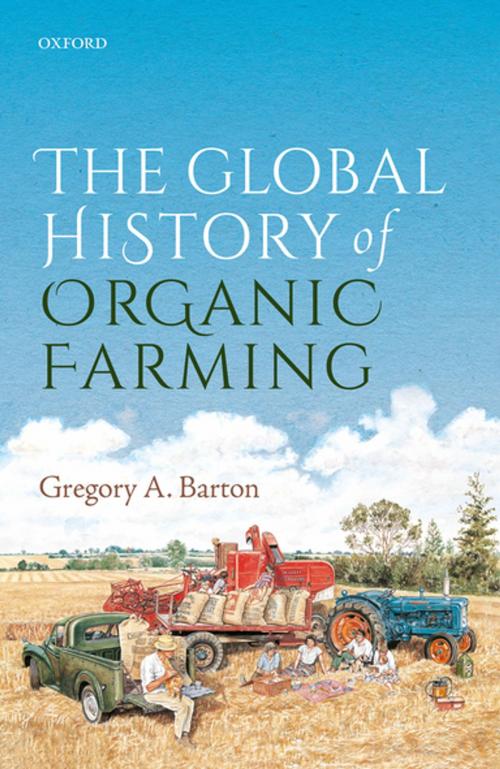The Global History of Organic Farming
Nonfiction, History, World History, Science & Nature, Technology| Author: | Gregory A. Barton | ISBN: | 9780192542601 |
| Publisher: | OUP Oxford | Publication: | February 9, 2018 |
| Imprint: | OUP Oxford | Language: | English |
| Author: | Gregory A. Barton |
| ISBN: | 9780192542601 |
| Publisher: | OUP Oxford |
| Publication: | February 9, 2018 |
| Imprint: | OUP Oxford |
| Language: | English |
Organic farming is a major global movement that is changing land-use and consumer habits around the world. This book tells the untold story of how the organic farming movement nearly faltered after an initial flurry of scientific interest and popular support. Drawing on newly-unearthed archives, Barton argues that organic farming first gained popularity in an imperial milieu before shifting to the left of the political spectrum after decolonization and served as a crucial middle stage of environmentalism. Modern organic protocols developed in British India under the guidance of Sir Albert Howard before spreading throughout parts of the British Empire, Europe, and the USA through the advocacy of his many followers and his second wife Louise. Organic farming advocates before and during World War II challenged the industrialization of agriculture and its reliance on chemical fertilizers. They came tantalizingly close to influencing government policy. The decolonization of the British Empire, the success of industrial agriculture, and the purging of holistic ideas from medicine side-lined organic farming advocates who were viewed increasingly as cranks and kooks. Organic farming advocates continued to spread their anti-chemical farming message through a small community that deeply influenced Rachel Carson's ideas in Silent Spring, a book that helped to legitimize anti-chemical concerns. The organic farming movement re-entered the scientific mainstream in the 1980s only with the reluctant backing of government policy. It has continued to grow in popularity ever since and explains why organic farming continues to inspire those who seek to align agriculture and health.
Organic farming is a major global movement that is changing land-use and consumer habits around the world. This book tells the untold story of how the organic farming movement nearly faltered after an initial flurry of scientific interest and popular support. Drawing on newly-unearthed archives, Barton argues that organic farming first gained popularity in an imperial milieu before shifting to the left of the political spectrum after decolonization and served as a crucial middle stage of environmentalism. Modern organic protocols developed in British India under the guidance of Sir Albert Howard before spreading throughout parts of the British Empire, Europe, and the USA through the advocacy of his many followers and his second wife Louise. Organic farming advocates before and during World War II challenged the industrialization of agriculture and its reliance on chemical fertilizers. They came tantalizingly close to influencing government policy. The decolonization of the British Empire, the success of industrial agriculture, and the purging of holistic ideas from medicine side-lined organic farming advocates who were viewed increasingly as cranks and kooks. Organic farming advocates continued to spread their anti-chemical farming message through a small community that deeply influenced Rachel Carson's ideas in Silent Spring, a book that helped to legitimize anti-chemical concerns. The organic farming movement re-entered the scientific mainstream in the 1980s only with the reluctant backing of government policy. It has continued to grow in popularity ever since and explains why organic farming continues to inspire those who seek to align agriculture and health.















